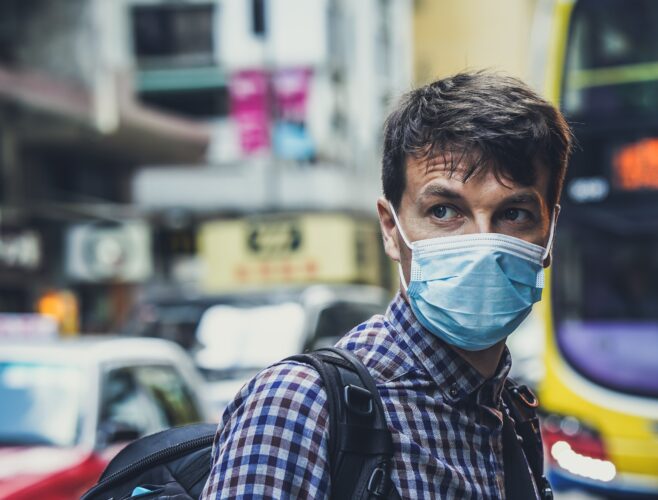For some time, I have been questioning the response to the Coronavirus and the economic devastation it is causing. This response is shutting down businesses and can cause great economic pain and even death (some will commit suicide in my view if their losses are too great. Others, losing their income will not be able to afford medicine and food. The policies are like a huge tax that all are paying to fight the virus. In Israel, we are seeing the most restrictive policies of any nation except for France. People here are losing jobs with no pay compensation. Some businesses will go under. Is it worth it?
The other day a spokesperson from the Center for Disease Control in the United States noted some very strange things about this virus. It is very different from the flu both in how mild and how severe. Usually, when a person has the flu, he or she knows it. When a person has this virus it may be severe. Those with compromised health can die from it and in larger numbers. However, it is milder than the flu. The expert did not know the statistics and noted that they would not be ever known because many people will never know they had it. They would have little or in some cases no symptoms. So those with mild symptoms can pass it to those who are in great danger. However, this means that the death percentage being reported is certainly much lower than the statistics since it is based on the percentage of people that die in proportion to known cases. No one has any idea of how many cases are unknown.
In light of all this, is the economy destroying measures being taken in many countries in the right direction? Why not just isolate those who are most at risk so they are protected. For the rest of the population, they live a normal life, taking more than the usual precautions that are taken for the flu season. They also would keep social distance by spreading their tables more apart in cafes, take care in gyms, etc. Was I the only one thinking this? Then Sunday night on Fox News, Steve Hilton, he said the same thing. He said that he has not been able to get any health expert in the government to answer the question as to why this would not be a better policy. The economic toll is terrible and the potential for inflation from massive government bailouts has to be credited as well. Well, I expect someone will answer Steve and prove that he (and I) are wrong. My understanding is that the British are approaching it more according to this alternative. They may be totally wrong! It is a big controversy as of this writing.
Here is a quote from the great thinker, Victor David Hanson. “Or, if the virus can scare us enough that we cease working and interacting, our canceled-out economy will grind to a halt.”
Here is a snippet from a British Financial Newspaper.
“Herd immunity.” In the absence of therapeutic treatments or a vaccine for the novel coronavirus, it suggests that there’s safety in numbers. Physicians say the reality is far more complex.
Patrick Vallance, the U.K.’s chief scientific adviser, said herd immunity is an option the government is exploring in its effort to grapple with the coronavirus-borne illness COVID-19. The aim would be to allow immunity to build up among members of the population who are least at risk of dying from COVID-19.
“What we don’t want is everybody to end up getting it in a short period of time so we swamp and overwhelm [National Health Service] services,” he told BBC Radio 4 on Friday. “Our aim is to try and reduce the peak, broaden the peak, not suppress it completely.”
His aim is to build up a herd immunity so more people are immune to this disease, thereby reducing the rate of transmission and protecting those who are most at risk of dying from COVID-19, the disease caused by coronavirus SARS-CoV-2.
“If you suppress something very, very hard, when you release those measures it bounces back, and it bounces back at the wrong time,” Vallance said. The U.K. has had 1,395 confirmed cases as of Sunday and 35 deaths, according to data the latest tally compiled by Johns Hopkins University’s Center for Systems Science and Engineering.
The approach represents a polar opposite to that implied in this week’s national-emergency declaration by U.S. President Donald Trump. The U.S. has had at least 3,774 confirmed coronavirus cases and 69 deaths. Coronavirus has infected 169,385 people globally and at least 6,513 deaths, John Hopkins said; it also reported 77,257 recoveries.
